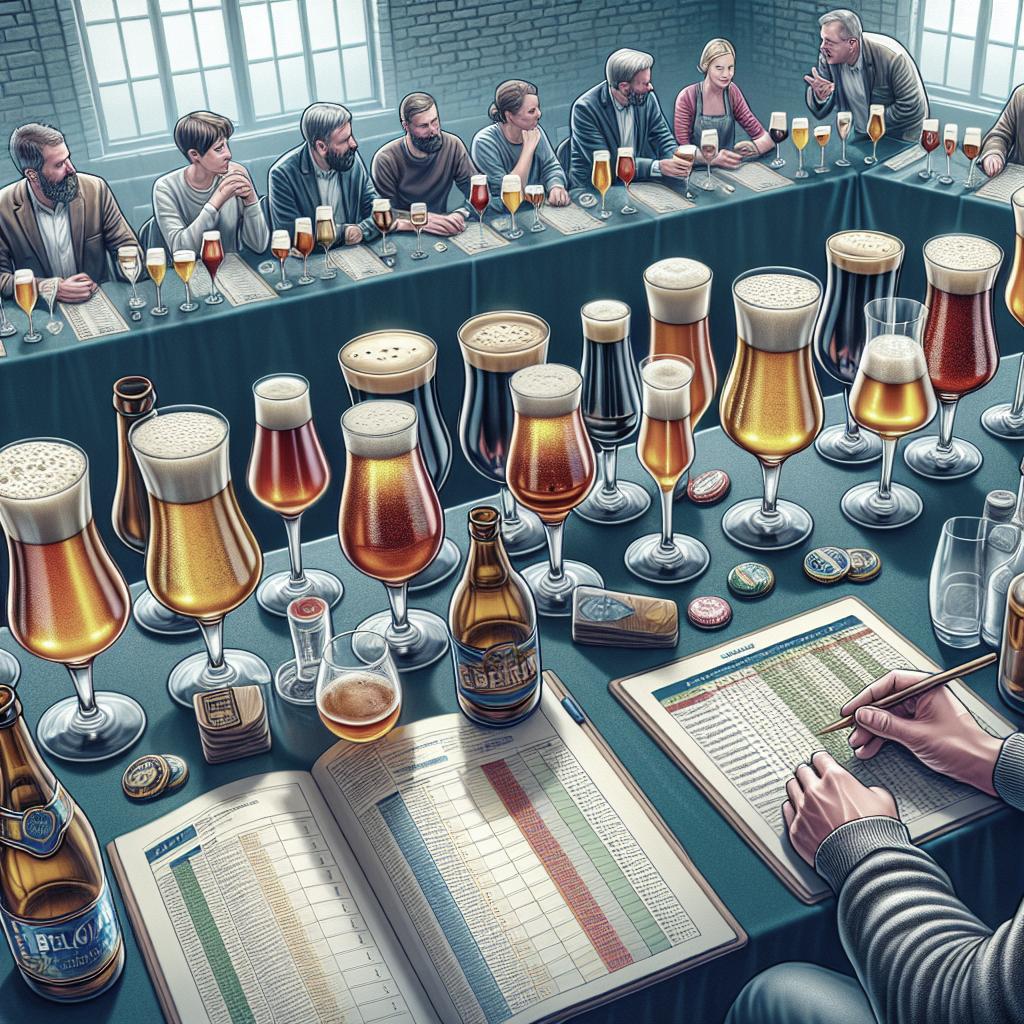“`html
Understanding Belgian Beer Competition Rules
Belgian beer competitions hold a prestigious place in the world of brewing, celebrated for their rigorous standards and emphasis on quality. As a prospective entrant or an aficionado looking to understand the inner workings of these competitions, it’s crucial to grasp the rules that govern them. This article delves into the intricacies of the competition process, explaining the application for sanctioning, the approval procedures, specific competition rules, and the importance of competition reports. By exploring these elements, one gains insight into the high standards upheld in Belgian beer competitions, reflecting the rich tradition and innovation within the industry.
Application for Sanctioning
Applying for sanctioning is the foundational step for any aspiring Belgian beer competition. Organizers must submit a formal application, which often involves detailing the competition’s objectives, categories, and judging criteria. This application must adhere to the guidelines set by relevant Belgian beer authorities, designed to maintain consistency and high standards across all events. Organizing bodies are typically expected to demonstrate their capability to host a fair and comprehensive judging process, ensuring that the competition aligns with established industry norms.
This process also involves providing evidence of logistical planning, such as venue arrangements, the composition of judging panels, and procedures for handling and tasting entries. The transparency in this application phase seeks to foster trust within the brewing community and assure participants that their entries will be evaluated fairly. The brewing authorities scrutinize these applications to uphold the prestigious nature of Belgian beer competitions, a reflection of the country’s storied brewing history.
Approval and Competition Reports
Once the application is submitted, it undergoes a rigorous approval process. This involves assessing whether the proposed competition meets all requisite standards and whether the organizing team has adequately addressed logistical and ethical considerations. Organizers will be notified of the outcome, with feedback provided to refine any elements as necessary. This approval process is vital for maintaining the integrity and reputation of Belgian beer competitions on the global stage.
Following the competition, organizers must compile a comprehensive competition report. This document serves as both a record and a tool for accountability, detailing all aspects of the event from start to finish. The competition report is critical, offering insights into the effectiveness of the processes in place, the categories judged, and the feedback received. It provides the foundation for continuous improvement and helps in setting benchmarks for future competitions.
Sanctioned Competition Rules
Belgian beer competitions sanctioned by the relevant authorities are governed by a strict set of rules designed to ensure fairness, integrity, and quality in judging. These rules often dictate the criteria by which beers are evaluated, adhering to traditional Belgian brewing standards and contemporary stylistic innovations. Categories may range from traditional ales and lagers to modern experimental brews, each with specific guidelines for entry and judging.
Judges in sanctioned competitions typically include certified beer experts and industry professionals, emphasizing impartiality and expertise in evaluation. The rules specify confidentiality agreements, ensuring that results and feedback remain proprietary to the competition. Additionally, entry fees and submission protocols are strictly outlined, with provisions in place for the storage and tasting of entries to prevent any compromise of quality.
Competition Report Reference
Competition reports are an invaluable reference for both organizers and participants, offering a thorough analysis of the competition’s execution. These reports highlight key data, such as the number of entries, judging outcomes, and participant feedback, serving as a tool for transparency and benchmarking. By analyzing these reports, organizers can identify areas of strength and opportunities for improvement, while participants can gain insights into industry trends and feedback on their entries.
Moreover, competition reports play a crucial role in documenting the evolution of brewing trends within the Belgian industry. They provide a snapshot of emerging styles, shifts in judging criteria, and participant demographics. By maintaining a comprehensive archive of reports, Belgian beer competitions help preserve the cultural significance of the brewing tradition while fostering innovation and excellence in the craft.
Summary of Main Points
| Section | Key Points |
|---|---|
| Application for Sanctioning | Details on application submission, adhering to guidelines, logistical planning, and maintaining consistency and fairness. |
| Approval and Competition Reports | Approval process assessment, competition outcome notification, feedback, and comprehensive reports for transparency and improvement. |
| Sanctioned Competition Rules | Standards for judging, entry categories, judging panel composition, confidentiality, and submission protocols. |
| Competition Report Reference | Data analysis, trend documentation, snapshot of industry evolution, and benchmarking for improvement. |
“`


